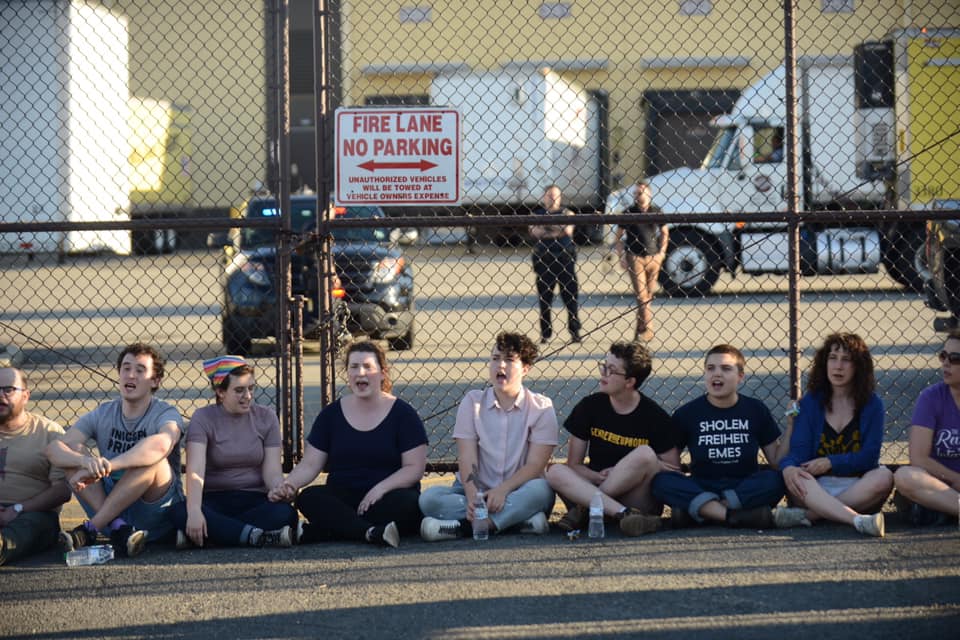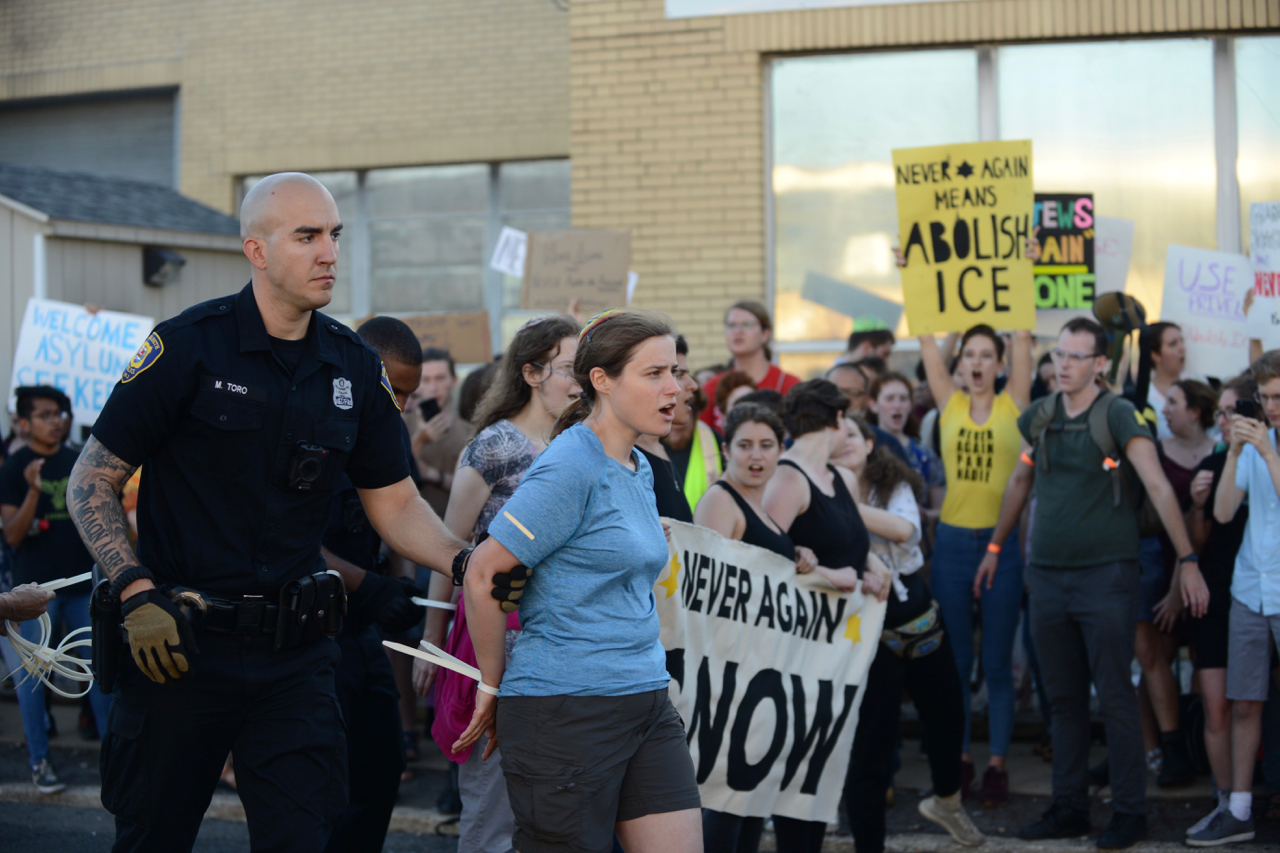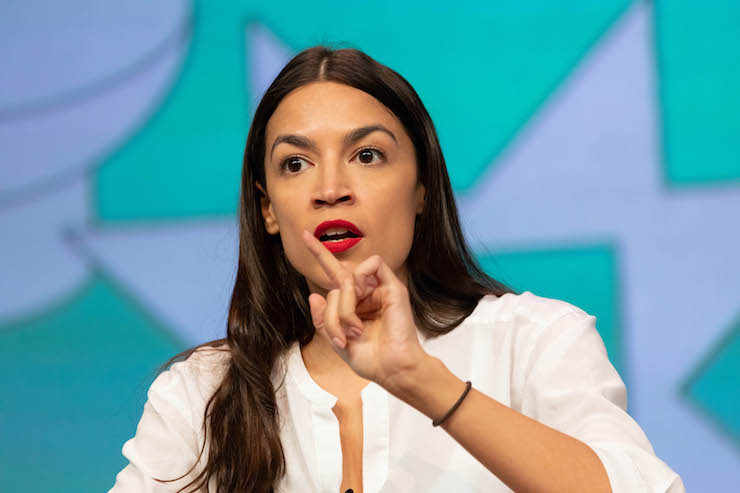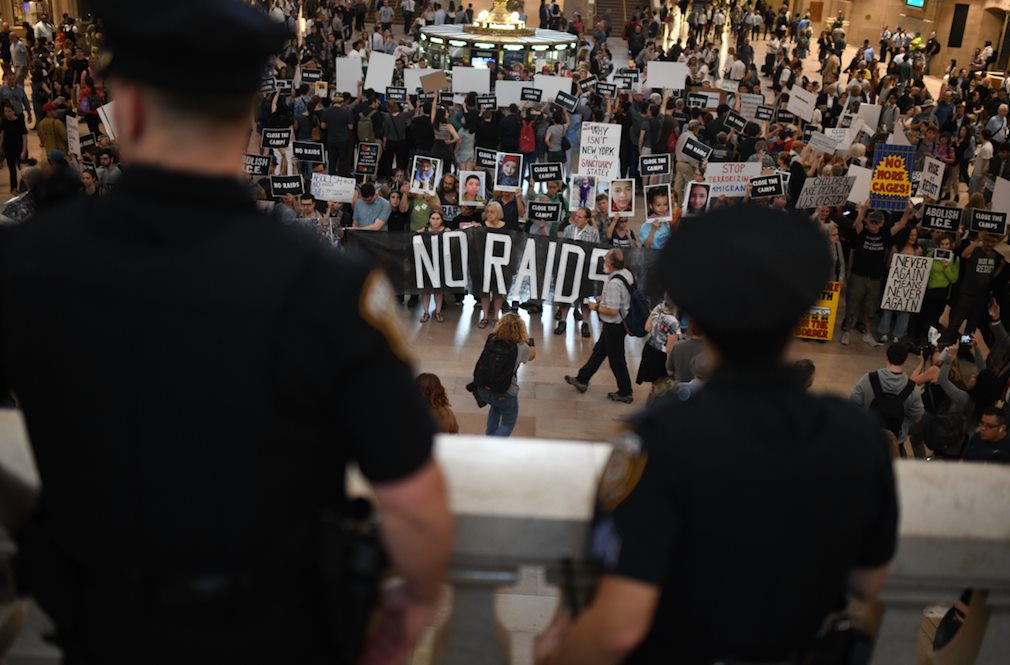In the face of dire conditions at U.S. border patrol facilities, many American Jews are increasingly unafraid to invoke their people’s history to warn against what may come next.

Weeks after New York Congresswoman Alexandria Ocasio-Cortez’s comments comparing immigration detention centers along the U.S.-Mexico border to concentration camps, reports of dire conditions at U.S. border patrol facilities continue to pour in.
Men, women, and children, some as young as infants and toddlers, forced into dirty, squalid, and overcrowded cells, or in other cases, held within chain-link fence enclosures outside in the summer heat. At least 24 immigrants have died in Immigration and Customs Enforcement custody since President Trump took office.
Despite all this, many Jewish organizations — from the right-wing Orthodox Coalition of Jewish Values, to the Republican Jewish Coalition, to the Anti-Defamation League — have continued to insist that any comparison between what is happening in the United States and what happened in Europe under the Nazis is not only offensive but impossible.
The Holocaust, they argue, was too horrible ever to compare to any present event, and doing so somehow harms the memory of those who suffered in the Nazi camps.
Quite a few American Jews, however, including the descendants of Holocaust survivors, seem to disagree. Over the past week, thousands of Jews have taken to the streets of major U.S. cities to protest the Trump administration’s policies of family separation and migrant detention along the southern border, as well as the aggressive detention practices of ICE and Border Patrol forces.
Hundreds demonstrated outside an ICE detention facility in New Jersey, where 36 protesters were arrested, while roughly 1,000 protesters shutdown traffic last Tuesday in Boston, where 18 people were arrested. Hundreds more joined recent protests in Philadelphia, Providence, Los Angeles, San Francisco, Chicago, and Washington, D.C.
At a time when many Jewish organizations have refrained from harshly criticizing the Trump administration because of its strong support for the right-wing Israeli government, these Jewish protesters, facing down police and often risking arrest, have rejected with their own bodies the narrow moral vision of the communal organizations that claim to represent them. The protests, led by a new Jewish group calling itself Never Again Action, have insisted on drawing a clear parallel between the U.S. government’s treatment of immigrants and asylum seekers and the Holocaust.
“The military camps where my people are being held today are concentration camps; just like the camps my people were held in 75 years ago were concentration camps,” said Tae Phoenix, a Jewish Latina activist and artist, in a statement released by the Never Again Action group.
The wave of Never Again Action protests comes amid the still-simmering debate over Rep. Ocasio-Cortez’s assertion that the Trump administration had established “concentration camps on the southern border for immigrants, where they are being brutalized with dehumanizing conditions and dying.” Right-wing figures such as Liz Cheney, together with Jewish establishment groups like the Jewish Community Relations Council, jumped to attack the freshman congresswoman from the Bronx. Cheney tweeted that Ocasio-Cortez had “demean[ed] the memory” of the victims of the Holocaust.

Meanwhile, the JCRC, an umbrella group of major Jewish organizations, issued a statement condemning Ocasio-Cortez’s comparison between ICE detention centers and Nazi-era concentration camps. Hundreds of academics from the world, in contrast, have not only defended her concentration camp comments but asserted the importance of drawing analogies between the Holocaust and other events.
Republicans, even at the highest levels of the party, have made it their explicit strategy to attempt to peel Jewish voters away from the Democratic Party by weaponizing accusations of anti-Semitism against prominent progressives like Ocasio-Cortez. Speaking at the evangelical Zionist group Christians United for Israel’s (CUFI) summit in Washington on Monday, Vice President Mike Pence reiterated the accusation that Ocasio-Cortez had “cheapened” the memory of Holocaust victims. “This slander of law enforcement,” he added, “was an insult to the six million killed.”
In the perverse, kaleidoscopic reality of the Trump era, the right, aided by establishment Jewish organizations, has attacked Ocasio-Cortez for the very comparison that thousands of Jewish protesters have taken to the streets to make. Unsurprisingly, the Never Again protests have generated a backlash of their own, mostly from the usual suspects on the right and in the professional hasbara world, but from some liberal Zionists as well. Following the group’s New Jersey demonstration, The Forward’s opinion editor Batya Unger-Sargon mocked their invocation of the Holocaust analogy, writing, “Can’t wait for #NeverAgain to mean Abolish Student Loan Debt.”
The hostile reactions to Ocasio-Cortez’s comments and the Never Again protests reflect the shifting and increasingly fractious terrain of Jewish communal politics in the United States. On the one side are religiously and politically liberal Jews who, by most accounts, make up the majority of the American Jewish population, and who abhor President Trump and his administration’s policies. The imagery and rhetoric employed by the Never Again protests exemplify the willingness among these liberal Jews to extract universalist lessons from particular episodes in Jewish history, chief among them, the Holocaust. For them, there is no contradiction between Jewish and liberal values; in fact, being a good Jew means, for some, being a good liberal.

On the other side is an increasingly shrill, fanatical faction of right-wing Jews who have thrown in their lot with President Trump, as well as with the president’s xenophobic, racist, and sometimes anti-Semitic supporters. Trump has won strong support from the Jewish right for elevating observant and Orthodox Jews to positions of power in his administration — such as Jason Greenblatt, Trump’s Middle East envoy, and David Friedman, the U.S. ambassador to Israel — and for embracing the territorial-maximalist position on Israel. The Trump “deal of the century” does not include a Palestinian state and could very well pave the way for Israel’s annexation of the West Bank.
The newly aggressive Jewish right’s support for Trump is, however, not purely instrumental — it is ideological. They despise liberals more than they love their fellow Jews, and have opted to find common cause with anti-Semitic, evangelical Christians, such as CUFI, and white nationalists such as Sebastian Gorka, a member of a racist, Hungarian nationalist order. The Trumpianization of the Jewish right as produced no shortage of grotesque spectacles: from Miriam Adelson contemplating adding a “Book of Trump” to the Bible to Norm Coleman, lobbyist for the Saudi government and chairman of the Republican Jewish Coalition, replacing God with Trump in the traditional Passover song “Dayenu.”
But while this Trump-supporting fringe may be small in number, it is comprised of plutocrats whose money carries significant weight within the Jewish community. In addition to donating hundreds of millions of dollars to the Trump campaign and other Republican politicians, the Adelsons are major donors to a range of Jewish organizations and educational programs, from Birthright to Hillel and more.

To be sure, the refusal of many establishment Jewish organizations to forcefully condemn the migrant detention camps along the southern border, and their willingness to join the right in weaponizing false accusations against progressive politicians like Ocasio-Cortez, cannot be chalked up solely to the malign influence of right-wing donors. The leaders of these organizations appear to genuinely believe that suffering of Jews in the past cannot be compared to the suffering of Central American migrants — let alone Palestinians — in the present.
And yet the many American Jews who joined the Never Again Action protests have boldly refuted this kind of selfish politics. They have embraced instead a broad politics of solidarity with the vulnerable and the oppressed, putting into practice the notion that from the worst moments in Jewish history stems the obligation to fight for a better future — not just for Jews, but for everyone.

